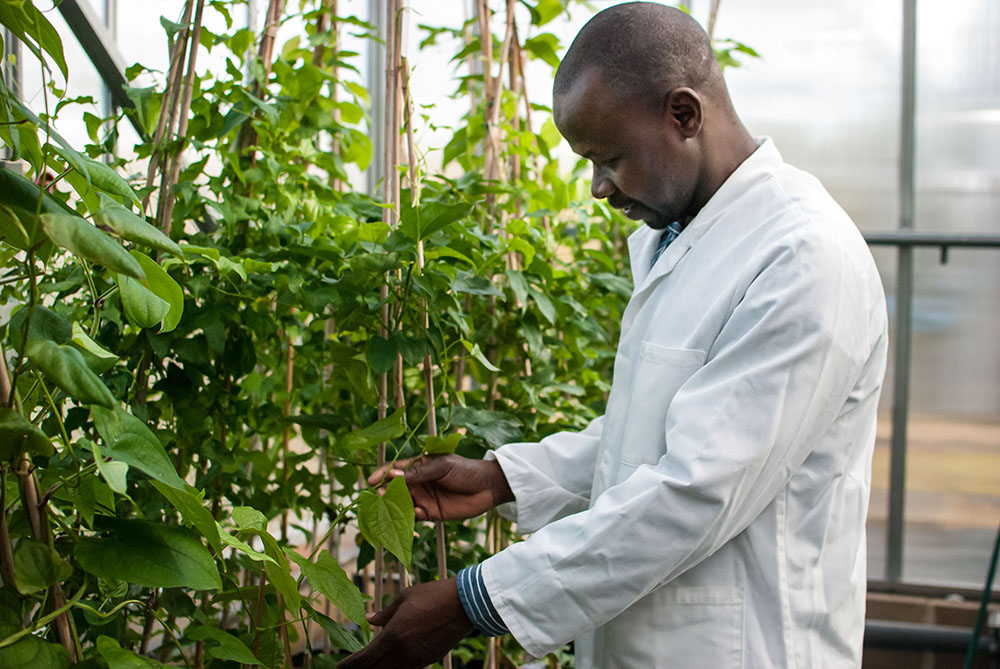
Sorry, apologies for the deliberate spelling mistake in the title, but now that we have your attention let's talk about producing fine sweet potato vines. More specifically about a new project funded by the Bill and Melinda Gates Foundation (US$1.5m) to improve quality and enhance commercialisation of sweet potato vine multiplication in Northern Uganda and areas centred around Gairo and Shinyanga in Tanzania.
NRI staff members, Richard Gibson and David Phillips, are working in close collaboration with in-country partners in both countries.
Sweet potato plays an important role as a staple food crop but it also provides income earning opportunities from the sale of planting material, fresh roots and processed products. Traditionally most farmers supply their own planting material from their previous crop. However, this is not possible during the dry seasons in each country. Therefore at the onset of rains, many farmers seek to purchase vines for planting from those farmers with access to wetlands who can produce vines during the dry season.
This project takes the novel approach of identifying and working with existing vine multipliers and linking them with research institutes as sources of planting material. The aim is to improve the quality of planting material, and introduce new varieties by getting existing vine multipliers who have access to wetlands to multiply improved and new varieties on a commercial basis. The expected result is a more sustainable method of improving planting material compared to other approaches where new varieties are often given to all farmers, many of whom cannot sustain the improved planting material during the dry season.
In order to understand, the commercial aspects of these enterprises, preliminary value chain analyses, weekly vine sales surveys, and baseline studies have been designed and implemented in Uganda, and will commence in Tanzania in the coming months. As the project develops, capacity building on business management and marketing will be designed and delivered according to needs of different vine multipliers in project locations.
Throughout the design, implementation, and dissemination stages of the project interaction with other researchers and managers of other projects working with vine multipliers and sweet potato farmers will continue and increase to share lessons from the research and development activities.
We are all looking forward to producing those fine vines!

